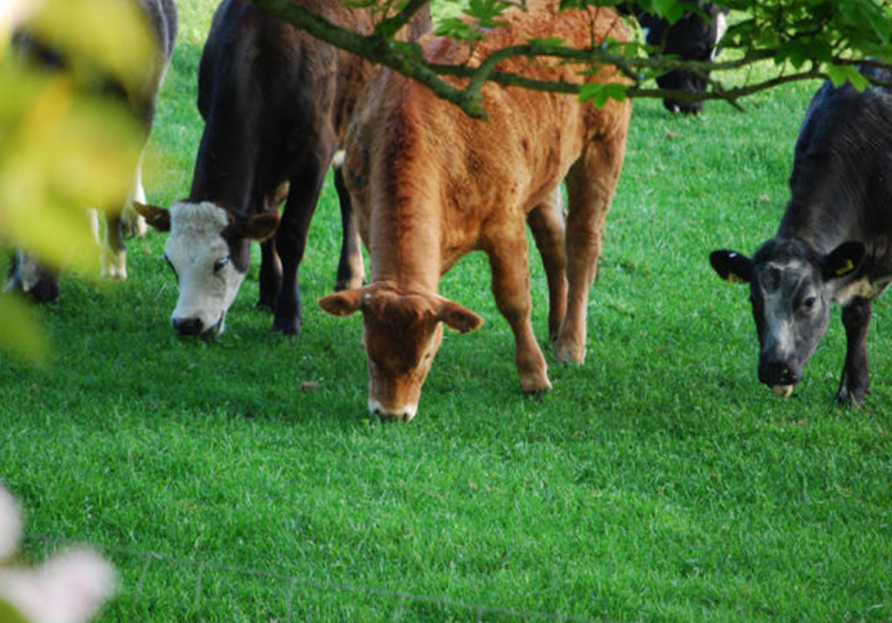LIHUE — Hawaii Dairy Farms has been awarded building permits for its proposed $17.5 million, 578-acre dairy in the Mahaulepu Valley.
And in light of public concern surrounding the project, the dairy has promised to conduct a voluntary Environmental Impact Statement.
Kyle Datta, general partner for Ulupono Initiative, the financial backer of the project, said in a release that the state Department of Health completed its Animal Feeding Operation review, which allowed for the approval of the permits from the County of Kauai.
“This is an important conclusion of the regulatory review, because it demonstrates that we have met the necessary federal, state and county requirements for the design of our farm’s AFO,” he said.
Datta added that by completing the review without requirement of an Environmental Assessment, the regulatory agencies have protected all small-scale animal farmers on private land from the significant financial burden of doing an EA for any planned expansion or new operations. He called it the “right thing to do for agriculture in Hawaii.”
HDF spokeswoman Amy Hennessey said the four building permits, approved Tuesday by the county, are for the dairy’s milking barn, calf sheds and implement shed.
Community concerns surrounding HDF’s plan have been extensive — from water contamination and impacts to the marine ecosystem to economic consequences and health risks from flies.
HDF says that in an effort to alleviate those concerns, specifically those related to potential environmental impacts, it will postpone construction of all dairy facilities until the EIS is complete.
“By going directly to an EIS, we are demonstrating our commitment to work with the community to address its concerns based on facts, not fears,” Datta said.
Tuesday’s announcement received praise from several project opponents, including Kawailoa Development, LLP, owner of the nearby Grand Hyatt Kauai Resort and Spa and the Poipu Bay Golf Course, which filed suit against HDF in 5th Circuit Court in July.
Jun Fukada, general manager of Kawailoa, said he was pleased HDF has listened to the community’s concerns and that the EIS process aims to alert decision-makers at the earliest practicable time to significant environmental effects.
“Kawailoa Development trusts that the agencies will use the information in Hawaii Dairy Farms’ EIS in their decision-making to rigorously protect our environment and community,” Fukada said. “With the commencement of the review process, it is vital that the dairy farm not be constructed until the EIS has been accepted and finalized.”
Hennessey said HDF is working with Honolulu-based Group 70 International on the EIS process, the same firm that’s been helping HDF with its plans for the farm.
“We’ve been told it takes 6-9 months for an EIS, but it really depends on how the process goes,” she wrote in an email.
Once complete, HDF will submit the study to DOH for approval.
Bridget Hammerquist, an outspoken opponent of HDF’s plan and member of local group Friends of Mahaulepu, said that while she is not convinced the EIS was entirely voluntary, she is pleased HDF will complete one.
“I think it’s great,” she said. “To me it’s the first big step they’ve taken in the direction of protecting the environment.”
Still, her worry is the study will show the proposed site on Grove Farm land is not an appropriate place for an industrial scale dairy.
During the EIS review period, Datta said HDF will continue to maintain its pastureland and install fencing as allowed by its National Resource Conservation Service conservation plan approval. The purpose of the dairy, he said, is to produce fresh, local milk for families across the state at prices everyone can afford.
“It will also strengthen the ability of the agricultural sector to continue to provide meaningful jobs and valuable economic support for Kauai,” he said.
In its complaint, Kawailoa claims its business, recreational, environmental and aesthetic interests would be adversely affected should the dairy move into the neighborhood, and asked the court to require HDF to complete an environmental assessment.
While the litigation is still pending, Kawailoa will evaluate its claims with its attorneys in light of the agencies’ permit approvals and HDF’s announcement that it will prepare an EIS, according to Fukada.
In July, in light of public outcry, HDF announced it would gradually phase in its operations over several months, beginning with between 650 and 699 cows and eventually reaching the initial 2,000. The EIS, Datta said, will help HDF continue the conversation with the community and demonstrate how its grass-based approach is protective of water quality and the natural environment.
“We know some members of the community are concerned about the perceived impacts of the cow manure,” he said. “We will work with experts from across the state, along with the community, to do an EIS to confirm that our farm is a superior method of farming that will regenerate soil quality and improve the overall environmental quality of the area.”
In a written statement, Mayor Bernard Carvalho Jr. said he appreciated the effort of HDF to conduct an EIS and agree not to construct any buildings until the study is complete.
“This action on their part signals that they have listened to the community and are sincere in their desire to work collaboratively so that we can realize a dairy here on Kauai that is environmentally sound and a model for sustainability,” Carvalho said.
